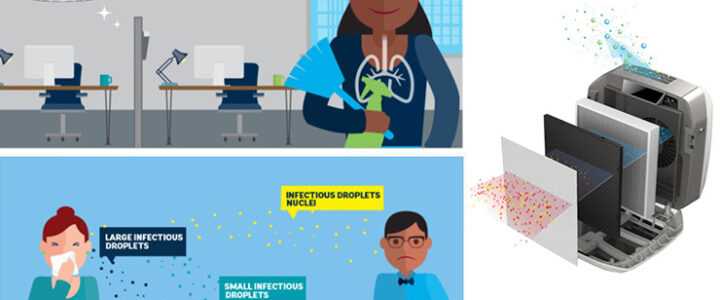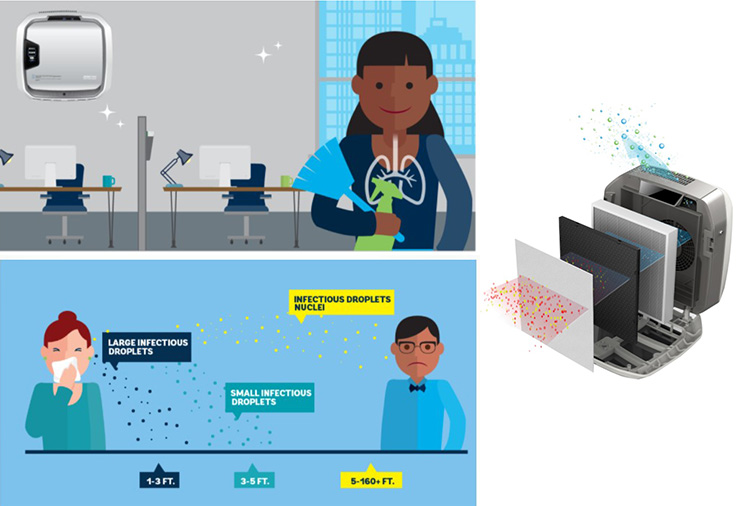
Recent news on COVID-19 airborne threat
Until now, there have been conflicting messages related to the risk of the airborne transmission of COVID-19. A group of 239 scientists in 32 countries have published their open letter to global health community to present the evidence.
In their letter, the highly qualified group state:
• Multiple studies “have demonstrated beyond any reasonable doubt that viruses are released during exhalation, talking, and coughing in microdoplets small enough to remain aloft in the air”.
• These microdroplets “pose a risk of exposure at distances beyond [3 to 6 feet] from an infected individual”.
• “we are advocating for the use of preventive measures to mitigate this route of airborne transmission.”
Read the full text of the letter: It is Time to Address Airborne Transmission of COVID-19
What we know about COVID-19
As discussed above, the highly qualified group of 239 scientists highlight in their open letter that multiple studies:
“have demonstrated beyond any reasonable doubt that viruses are released during exhalation, talking, and coughing in microdoplets small enough to remain aloft in the air”
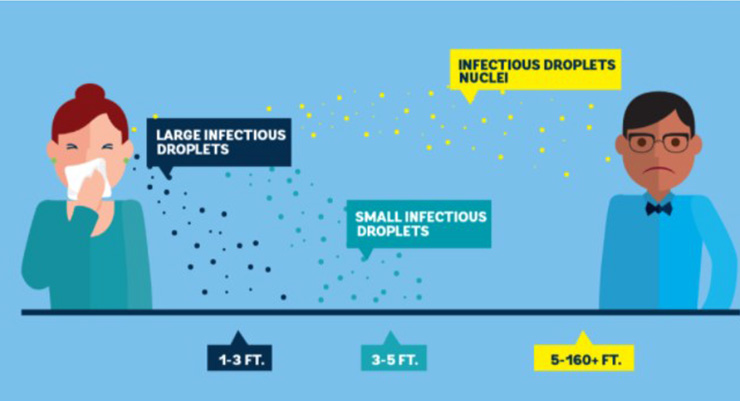
Surfaces and COVID-19
While it’s believed that COVID-19 spreads from person-to-person contact, officials haven’t ruled out surface contact as a potential source of contagion. It’s just too early to tell.
In fact, recent tests on the coronavirus COVID-19 showed it can stay active on various surfaces. Researchers found viable coronavirus samples could live for up to:
• 24 hours on cardboard
• four hours on copper surfaces
• two to three days on plastic and stainless steel.
During tests, the researchers also found the coronavirus could be detected in the air up to three hours after emission, making it vital that people clean the air.
The importance of cleaning
While the majority of COVID-19 cases are derived from person-to-person contact, we can’t overemphasize the importance of proper room cleaning.
So, while many people have stressing surface and hand cleaning, the addition of cleaning the air will undoubtedly help manage enclosed spaces. AeraMax Professional’s four-stage system, with True HEPA filtration, can effectively and efficiently build on the hand and surface cleaning routines.
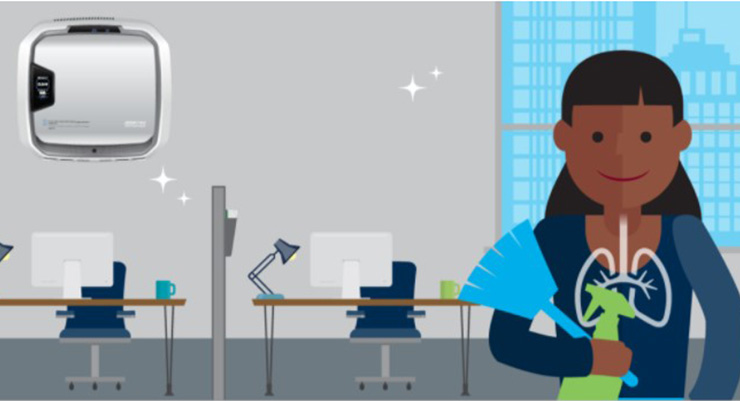
Where AeraMax Professional can help
We do know that AeraMax Professional air purifiers can mitigate additional pathogens in the air where people are infected, removing pollutants from air and reducing risks for people already infected.
AeraMax Professional air purifiers:
•Are certified to be effective in reducing airborne concentrations of influenza A (H1N1) aerosol in a test chamber, reaching 99.9% airborne virus reduction within the first 35 minutes of operation.
•Are certified to capture 99.97% of pollutants at 0.3 microns.
•Can capture more than 97.8% of pollutants at 0.1-0.15 microns, via IBR Laboratories test data.
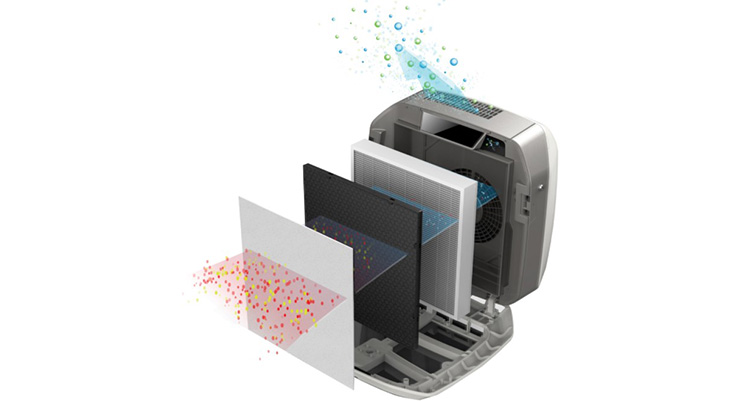
What’s more, an AeraMax Professional III with PureView Technology can sense when airborne contamination is present in a room, automatically adjusting cleaning to remove the offending particles from the air. This is ideal for places like assisted living facilities, where residents already have compromised immune and respiratory systems.
AeraMax Professional Air Purifiers are available at Jacobs Gardner Supply Co. www.jacobsgardner.com


